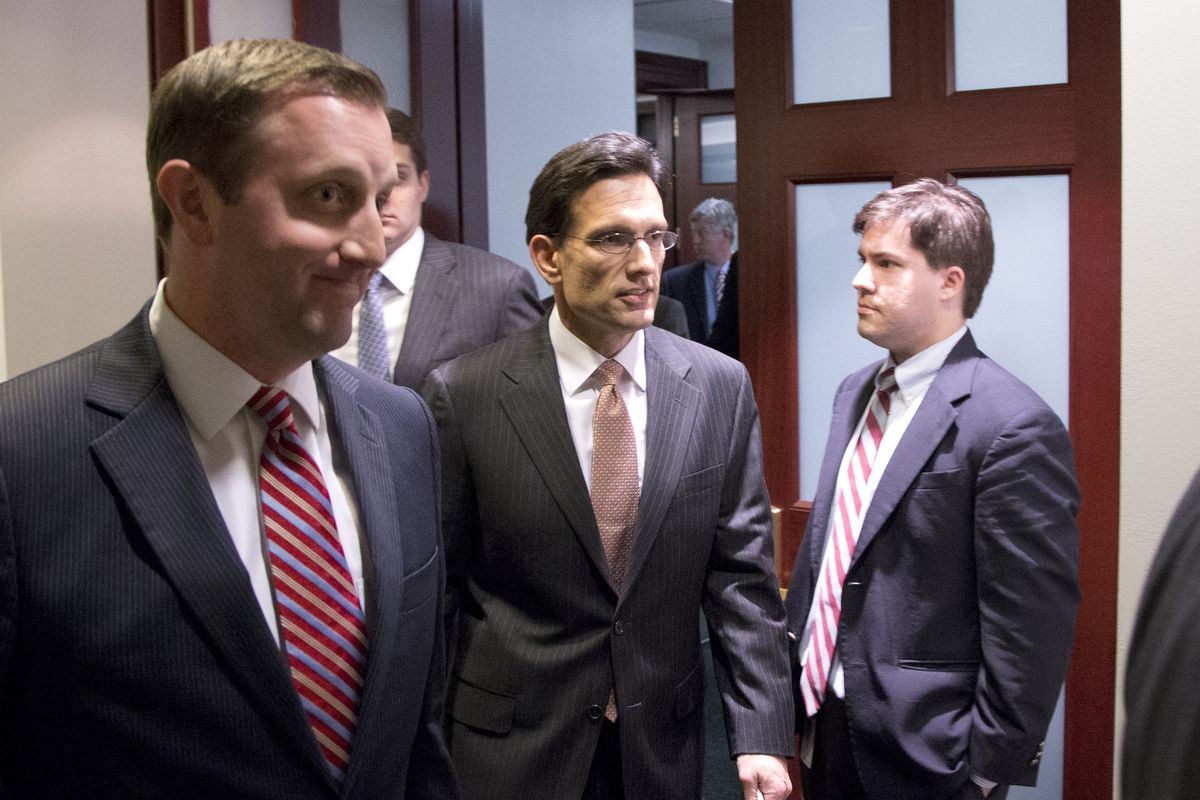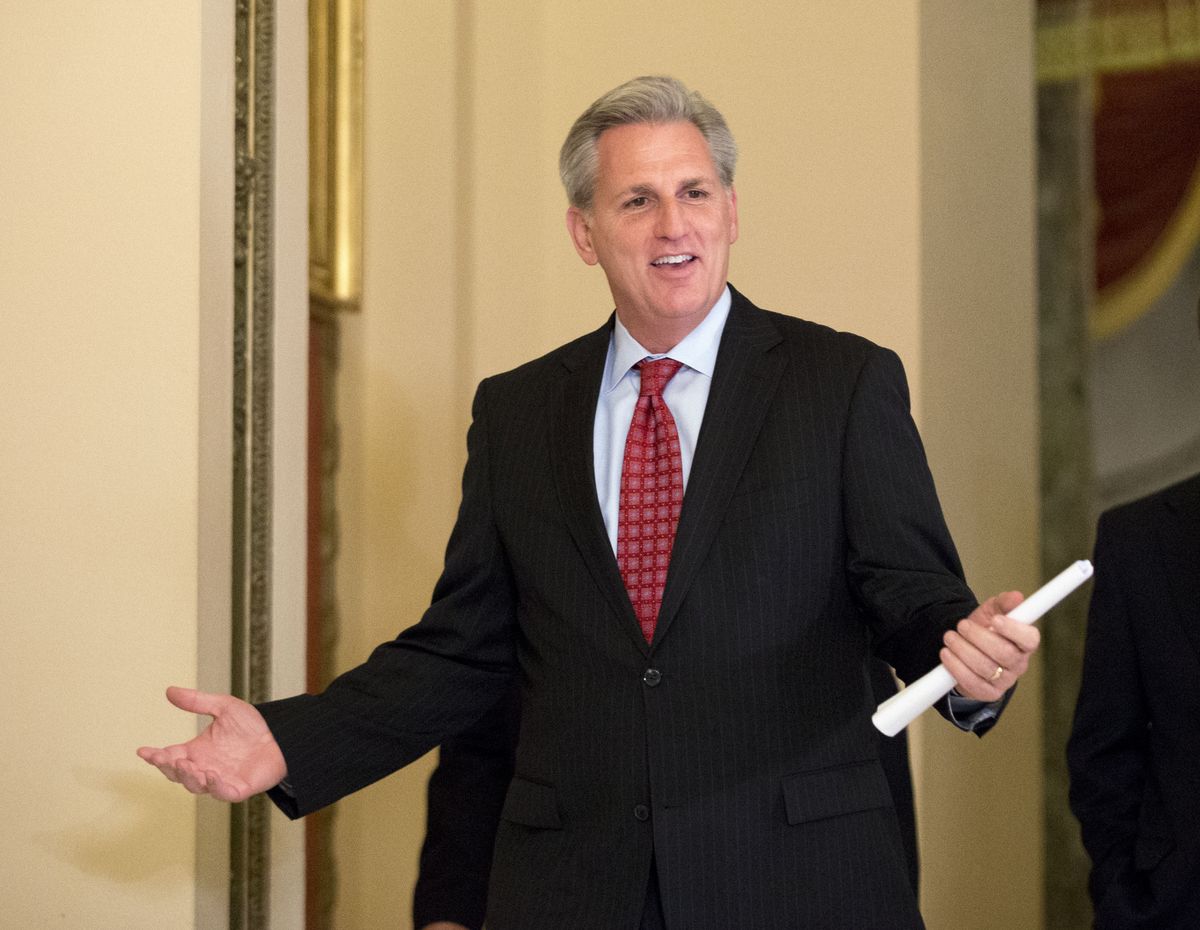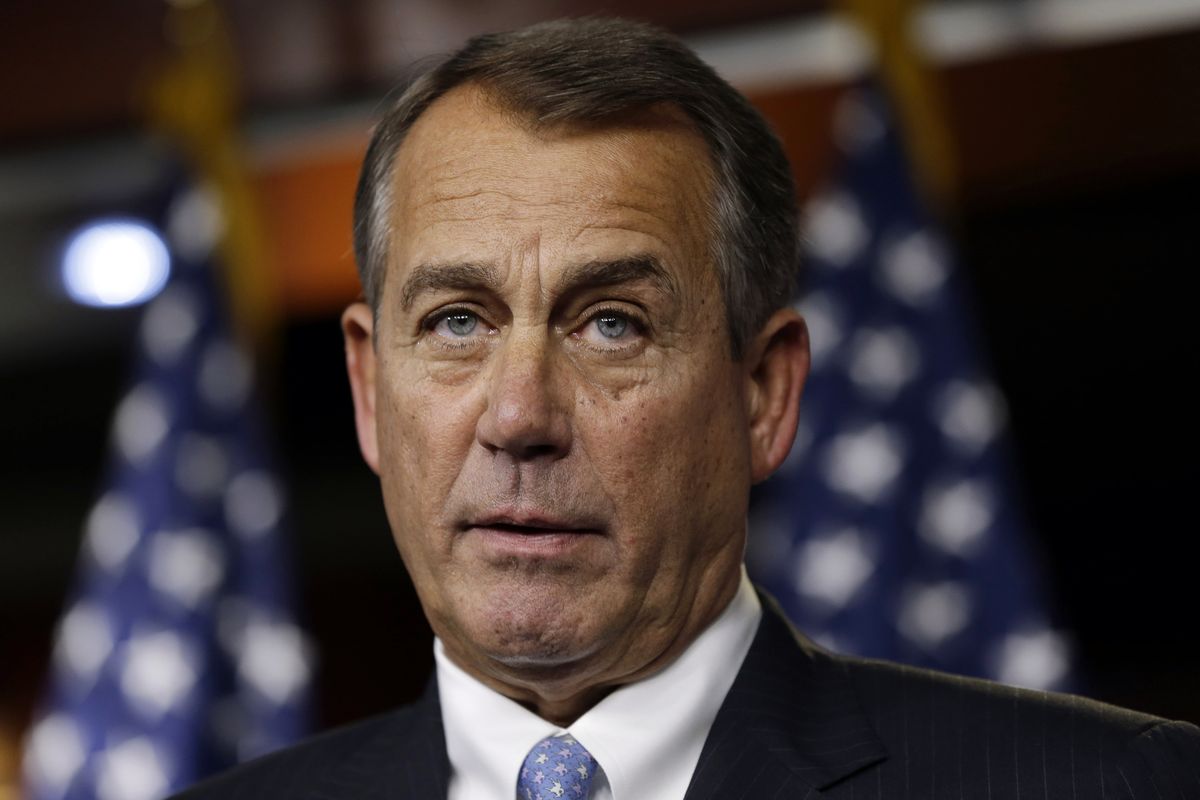Boehner can’t get ‘Plan B’ backing
House vote canceled; fiscal cliff still looms
Boehner
WASHINGTON – House Speaker John Boehner abruptly called off a vote on his “Plan B” tax proposal late Thursday, a stunning political defeat after GOP leaders failed to round up support for his alternative to a broader budget deal with President Barack Obama.
Boehner’s bill, which would have prevented a year-end tax increase for all but those earning more than $1 million a year, “did not have sufficient support from our members to pass,” the Ohio Republican said in a statement before he quickly left the Capitol.
“Now it is up to the president,” he said, to work with the Senate “to avert the fiscal cliff.”
The sudden turn of events turns the focus back to the White House with little time remaining to craft a year-end deal. At the same time, the support from Republican leaders for a tax hike on the wealthiest Americans has cracked the party’s anti-tax orthodoxy and opened the door to renewed talks on a solution to the fiscal stalemate.
The two sides had been closing in on a broad deficit-reduction deal to steer around the coming “fiscal cliff,” but Boehner abruptly changed course this week to gauge the sentiment of his House Republicans. Without a compromise, most Americans will see their taxes automatically rise and spending cuts ripple across the economy in the new year.
As the speaker and his top lieutenants trolled on and off the House floor Thursday in search of votes, buttonholing lawmakers in scenes like those in the hit movie “Lincoln,” White House press secretary Jay Carney dismissed Boehner’s Plan B as a “multiday exercise in futility.”
In his most recent offer to the speaker, Obama had made a substantial concession: a proposal to raise taxes only on household income above $400,000, rather than $250,000, the threshold the president had campaigned on for re-election.
“Instead of taking the opportunity that was presented to them to continue to negotiate what could be a very helpful large deal for the American people, the Republicans in the House have decided to run down an alley that has no exit,” Carney said.
Days before Christmas, the stalemate played out against the backdrop of a holiday season. Homemade fruitcake, compliments of Rep. Earl Blumenauer, D-Ore., was offered off the chamber floor; one congressman carried a wrapped box of chocolates under his arm.
As their troops dined on Chick-fil-A, the House GOP leaders enlisted the help of key Republican senators to help make the case to wavering lawmakers.
Ohio Sen. Rob Portman went to the House side of the Capitol to lobby members, calling Plan B “an important step in changing the debate and getting to a better result.”
But he also said, if it failed, then it still presented an “opportunity for a broader agreement.”
Late in the evening, the House took a sudden recess as the time for the vote neared. The silence on the House floor was a sign that the tally had come up short. With Democrats standing almost united against the bill, Boehner could lose only two dozen Republican defectors.
The speaker and his top lieutenants then convened a late-night meeting of rank-and-file lawmakers to announce the decision to pull out. Boehner entered the room, told members it would be a short meeting and recited a serenity prayer.
“We don’t have the votes,” the speaker told them, according to a lawmaker in the room.
The day also saw the return of Rep. Paul D. Ryan, R-Wis., the vice presidential candidate, to his familiar role as top budget hawk. Ryan acknowledged that Plan B fell short of what many of his colleagues wanted. “Elections have consequences,” he said. “I of all people understand that.”
But despite his stature in the House, his support was not enough.
Conservatives split over Plan B, complicating Boehner’s search for votes. He received a major assist when anti-tax stalwart Grover Norquist’s Americans for Tax Reform declared that the bill was a vote for lower taxes and did not violate the pledge most Republicans have signed not to raise taxes. But other leading conservative groups opposed it, including FreedomWorks, which is associated with the tea party.
To sweeten the deal for conservatives who wanted steeper spending cuts in exchange for a tax hike, GOP leaders brought a second bill to the floor – a do-over of Ryan’s proposal to shift the automatic cuts coming on Jan. 2 from defense programs to domestic ones.
The Ryan bill passed the House earlier this year, but stalled in the Senate as Democrats resisted cuts to the school lunch program and other popular programs. The House voted to approve it, 215-209, on Thursday, mainly along party lines.
Even that gesture was not sufficient for some House Republicans. Rep. Paul Broun, R-Ga., said he planned to vote against the Ryan bill and Plan B, explaining that the proposals failed to make tough budget cuts.
“It’s kind of like Wimpy in the Popeye cartoons: ‘I’ll be glad to pay you tomorrow for a hamburger today,’ ” Broun said, “and I’m not going to give the hamburger anymore.”
Boehner’s Plan B would continue most of the existing tax rates, first approved under President George W. Bush, that would otherwise expire at the end of this year, while allowing taxes to rise on household income above $1 million. The top 35 percent rate would increase to 39.6 percent, and the 15 percent rate on capital gains and dividends would rise to 20 percent for those high earners.
The Boehner bill excluded other expiring provisions, including college and child tax credits, first approved under Obama in 2009. An analysis from the nonpartisan Tax Policy Center said that means Plan B would raise taxes on low- and moderate-income households that claim those credits.


